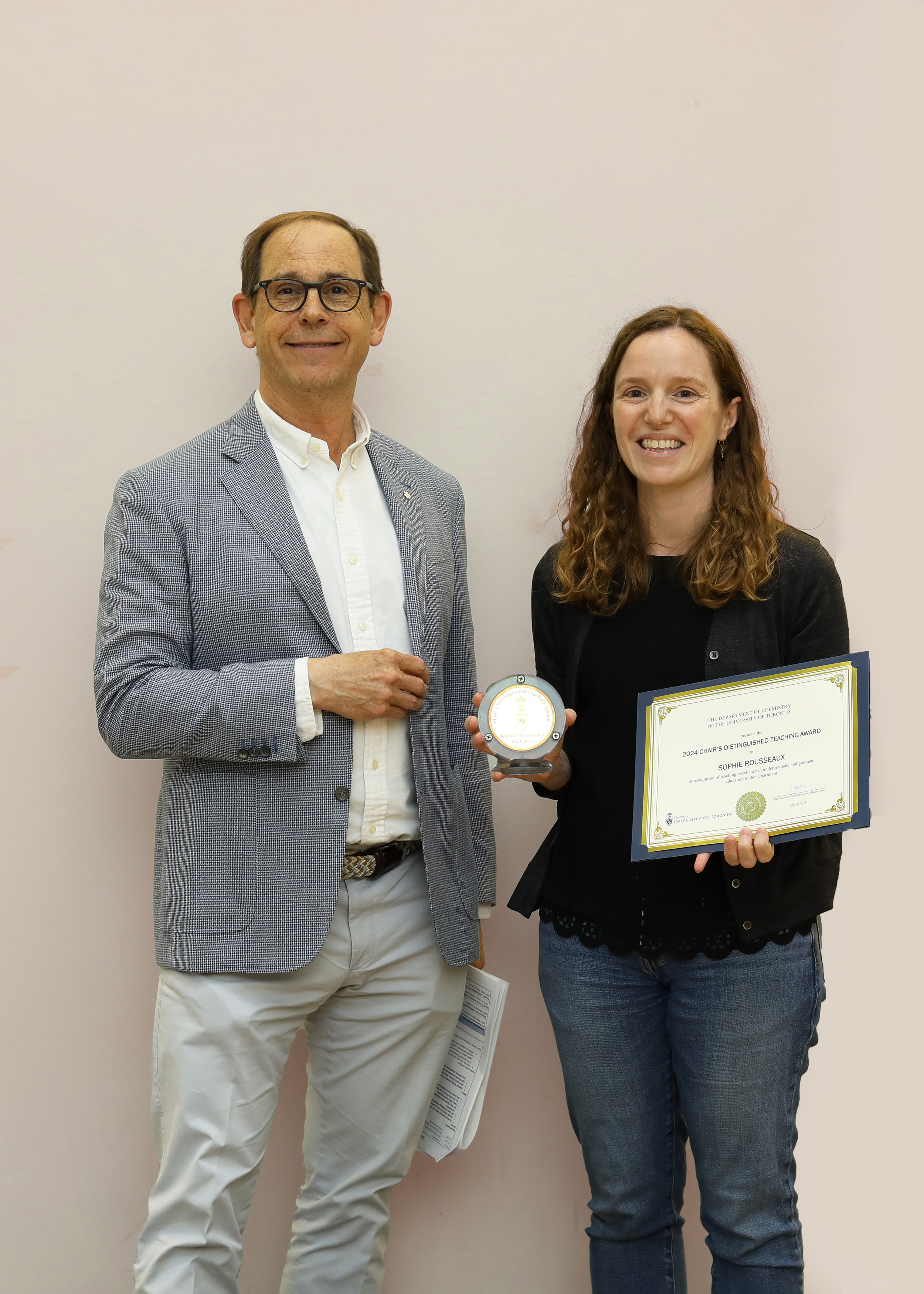When acquaintances ask Professor Sophie Rousseaux about her career, she says, they often respond by saying things like “Organic chemistry was the worst grade I ever got,” or “I almost didn’t make it into medical school because of organic chem.”
Rousseaux’s reaction? Striving to make organic chemistry less daunting to students--a journey that has led her to win the 2024 Chair’s Distinguished Teaching Award.

“While I don’t expect to influence an entire class of first- or second-year organic chemistry students to pursue doctoral studies, I hope to get them excited about chemistry and its real world applications,” she says.
Rousseaux joined the Department of Chemistry in 2015 and was promoted to Associate Professor, with tenure, in July of 2022. She says she is pleased to have her efforts recognized at the departmental level and appreciates having her dedication to teaching recognized.
“I don’t want others to view this subject negatively. I'm not trying to convince everyone who leaves CHM136 to become an organic chemist, but it’s important for students to leave having an appreciation for what it is as a subject.”
In recent years Rousseaux has worked in a team with Professors Scott Browning, Barb Morra and Mark Nitz to revamp the organic chemistry courses CHM 136H and CHM 151Y. The team, which was created before the 2020 pandemic lockdown, moved the courses away from functional group teaching to a mechanism-based approach.
“Functional group chemistry is focused on products,” Rousseaux explains, “A student memorizes ways to produce—for example—a series of alcohols. Mechanism-based teaching, by contrast, is focused on reactivity patterns. If you understand how one product is synthesized, you can learn to predict all of the others.”
“At the heart of this change is a difference in approach to how organic chemists think about building molecules.”
The course overhauls were far-reaching, including textbook changes, coordination of teaching faculty and staff, and revision of tutorials. Labs now focus on new synthetic methods. Skills in building molecules are conveyed more efficiently.
“By focusing on trends in reactivity and the problem-solving nature of organic chemistry, we empower students to apply concepts to more challenging scenarios, rather than simply attempting to memorize the course content.”
Rousseaux adds that course changes like these allow professors to highlight the broad skills being learned in organic chemistry courses, like problem solving, and demonstrate how these skills can be useful in careers outside of academia.
Andy Dicks, Associate Chair of Undergraduate Studies at Chemistry, has been pleased with the team’s work. “Even though this year was our first time running CHM 136H and CHM 151Y with the new organic curriculum in place, we saw a greater number of students complete each course than in the previous academic year. As we continue to run the new curriculum and refine it, our expectations are that more students will be recruited into Chemistry programs and find themselves better-positioned to be successful in their studies.”
“Instructors like Sophie Rousseaux who are committed to students’ well-being really make a difference through their enthusiasm and thoughtfulness,” he says. "In particular this year, her passion and dedication to teaching excellence have made all the difference to the first-year undergraduate experience. We and our students are lucky to have her on the faculty.”
The Chair’s Distinguished Teaching medal was awarded to Rousseaux at the Chemistry Department awards ceremony on May 29th.


